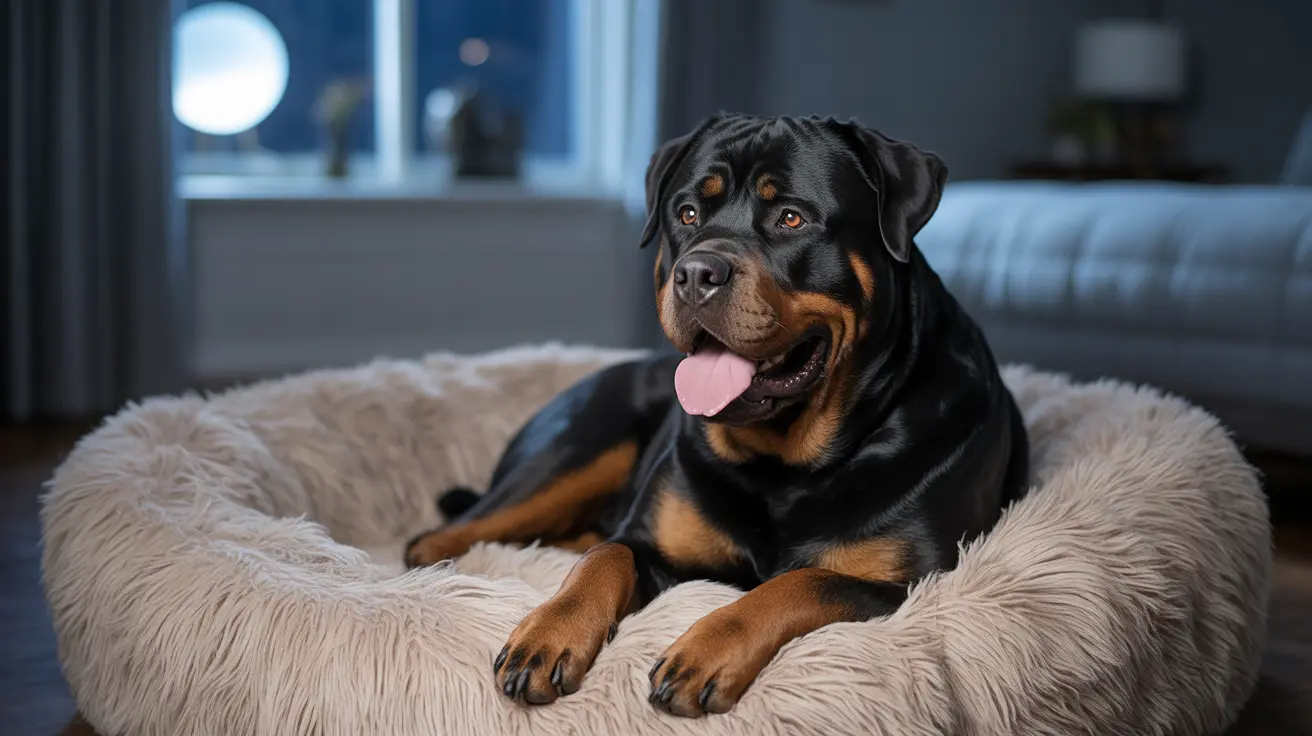Normal Reasons for Nighttime Panting
Dogs naturally pant to regulate their body temperature and calm themselves after physical activity. Unlike humans who can sweat throughout their bodies, dogs primarily cool down through panting and sweating through their paw pads.
- Recent exercise or playtime
- Slightly elevated room temperature
- Excitement from evening activities
- Normal cooling after eating
Medical Causes of Nighttime Panting
Heart and Respiratory Issues
When dogs pant excessively at night, it could indicate cardiovascular or respiratory problems. Heart disease can cause difficulty breathing, leading to increased panting, especially when lying down. Signs that might accompany heart-related panting include:
- Coughing
- Reduced exercise tolerance
- Bluish tongue or gums
- Excessive fatigue
Pain and Discomfort
Dogs often pant when experiencing pain or discomfort. Conditions like arthritis tend to worsen at night, causing increased panting. Other pain-related symptoms might include:
- Restlessness
- Difficulty getting comfortable
- Whining or vocalization
- Reluctance to move
Anxiety and Stress-Related Panting
Mental distress is a common cause of nighttime panting in dogs. Anxiety triggers might include:
- Separation anxiety
- Changes in routine
- Environmental stressors
- Unfamiliar noises
Dogs suffering from anxiety may also exhibit pacing, whining, or destructive behavior alongside their panting.
Age-Related Causes
Senior dogs may experience increased nighttime panting due to:
- Cognitive dysfunction syndrome
- Joint pain
- Temperature regulation difficulties
- Hormonal changes
When to Seek Veterinary Care
Certain signs warrant immediate veterinary attention:
- Excessive or sudden onset of panting
- Difficulty breathing
- Changes in gum color
- Collapse or extreme lethargy
- Panting accompanied by trembling or vomiting
Solutions and Management Strategies
To help reduce nighttime panting:
- Maintain a cool, comfortable sleeping environment
- Establish a consistent bedtime routine
- Provide appropriate exercise during the day
- Consider anxiety-reducing techniques or products
- Ensure proper pain management for arthritic pets
Frequently Asked Questions
Why is my dog panting a lot at night even when it's cool?
Nighttime panting in cool conditions could indicate anxiety, pain, or an underlying medical condition. If this behavior is new or persistent, consult your veterinarian for proper evaluation.
Can anxiety or stress cause my dog to pant excessively during the night?
Yes, anxiety and stress are common causes of nighttime panting in dogs. This can be triggered by changes in routine, unfamiliar noises, or separation anxiety.
What medical conditions can make my dog pant heavily at night?
Several medical conditions can cause nighttime panting, including heart disease, respiratory problems, hormonal disorders like Cushing's disease, and pain from conditions such as arthritis.
When should I be concerned and take my panting dog to the vet immediately?
Seek immediate veterinary care if your dog's panting is accompanied by difficulty breathing, blue or purple gums, collapse, or signs of extreme distress. Also concerning are sudden changes in panting patterns or panting that seems excessive for the situation.
How can I help reduce my dog's nighttime panting caused by pain or discomfort?
Consult your veterinarian for appropriate pain management strategies, provide orthopedic bedding, maintain a comfortable temperature, and establish a consistent routine. Never give human pain medications without veterinary approval.
Conclusion
While dog panting at night can be normal, understanding when it signals a problem is crucial for your pet's health. Pay attention to changes in panting patterns and accompanying symptoms, and don't hesitate to seek veterinary care when concerned. With proper attention and care, many causes of nighttime panting can be effectively managed to ensure your dog's comfort and well-being.






